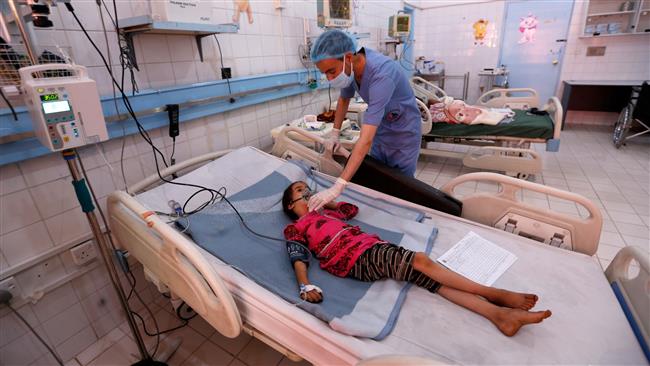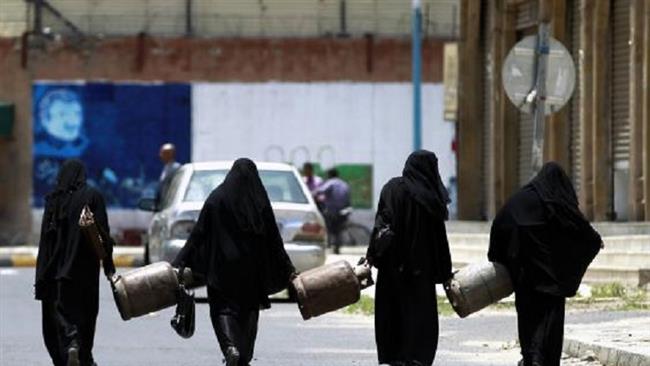Diphtheria cases rising in Yemen amid vaccine shortage: WHO
The World Health Organization (WHO) has warned against the rising number of diphtheria cases in Yemen amid a dire shortage of vaccine caused by the Saudi-led blockade of the impoverished country.
So far, out of 197 registered diphtheria cases in Yemen, 22 patients have died as a result of the highly contagious infection, the WHO said on Friday.
The UN health agency warned that the Saudi-led blockade on aid delivery to Yemen has dramatically impacted its ability to restock vaccine supplies needed to prevent the outbreak of the disease.
"There is still not even one dose of Tetanus-Diphtheria vaccine in the country for children above five years and young adults," WHO spokesman Christian Lindmeier told reporters in Geneva.
Lindmeier noted that nearly 8.5 million doses of the vaccine are required to vaccinate those at risk.
A Saudi-led coalition has been incessantly pounding Yemen since March 2015 in an attempt to crush the popular Houthi Ansarullah movement and reinstate the former president, Abd Rabbuh Mansur Hadi, who is a staunch ally of the Riyadh regime.
The Saudi-led coalition has tightened its aerial and naval blockade on Yemen since November 6, when Yemeni forces launched a solid propellant and Scud-type Borkan-2 (Volcano-2) missile against King Khalid International Airport, located 35 kilometers north of the Saudi capital Riyadh, in retaliation for Riyadh’s deadly airstrikes.

According to the United Nations, unless the blockade is lifted, Yemen will face "the largest famine the world has seen for decades."
Lindmeier pointed to fuel shortages and soaring prices in Yemen as a result of the blockade, warning that the situation could risk disrupting fuel deliveries to 122 hospitals and force some to close.
Meanwhile, nearly one million people have been infected by Yemen's cholera epidemic, which has claimed the lives of more than 2,200 people since April.
More than 12,000 people have been killed since the onset of Saudi Arabia's deadly campaign against Yemen in March 2015. Much of the Arabian Peninsula country's infrastructure, including hospitals, schools and factories, has been reduced to rubble due to the war.
According to the UN, the country is experiencing "the worst humanitarian crisis on the planet."
Trump 2.0 and its possible implications on Ukraine war, NATO and Europe
Israeli commander exposed troops to resistance fire to steal plasma screens
Iran lifts ban on WhatsApp, Google Play
VIDEO | Palestinian childhood under threat
Yemeni forces strike Israeli military site with hypersonic missile
Yemeni missiles alter US, Israel’s calculations: Iranian FM
Israel provides full support for theft of aid to starve Gazans: Report
'Israel booby-trapped walkie-talkies, pagers years before Lebanon blasts'












 This makes it easy to access the Press TV website
This makes it easy to access the Press TV website